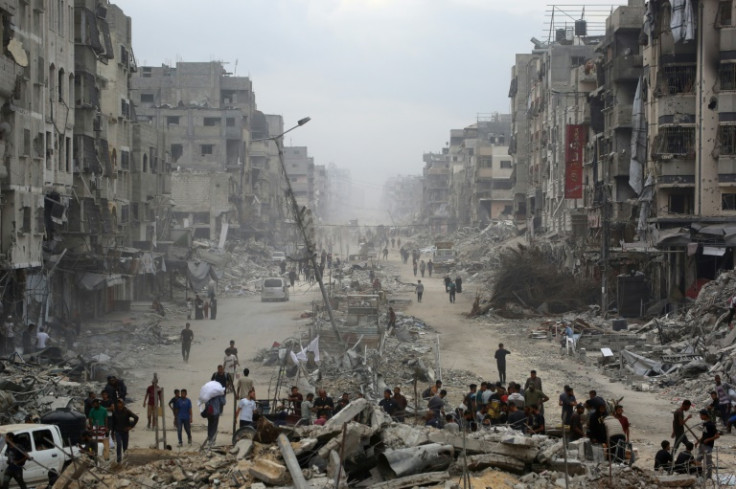UK Faces Backlash for Continuing Military Support to Israel Despite Gaza Ceasefire

The UK government is under intense criticism for continuing to provide military assistance to Israel even after the fragile ceasefire in Gaza, raising questions about Britain's consistency and credibility in the Middle East peace process.
Earlier this month, the UK deployed a two-star commander and several military planning officers to Israel at the request of Washington. They are now part of an American-led Civil-Military Coordination Centre (CMCC), which is tasked with stabilising post-conflict Gaza and managing humanitarian coordination.
Despite the ceasefire, British officials argue their contribution is limited and advisory in nature. Defence Secretary John Healey insisted the UK would not lead the mission but provide specialist expertise 'as a committed partner' in the peace process.
Accusations of Policy Contradiction
Critics say the continued military cooperation undermines the UK's diplomatic credibility. By sending defence personnel and maintaining arms exports to Israel, the government risks being seen as complicit in prolonging the conflict rather than supporting peace.
Activists and MPs across party lines argue this represents a double standard in foreign policy — preaching humanitarian law while fuelling conflict through trade.
'Britain cannot claim to champion peace while supplying weapons to one side of the war,' said one campaigner from Amnesty International UK.
A key concern is the perception of double standards. While London has publicly urged Israel to abide by international humanitarian law, the simultaneous military cooperation is viewed by many as inconsistent and damaging to Britain's global standing. The UK has previously suspended a small number of arms export licences to Israel, but it's been revealed that British-manufactured components continue to flow.
The genocide never stopped. End all arms sales to Israel, now. pic.twitter.com/fOcjmKF0qE
— Jeremy Corbyn (@jeremycorbyn) October 29, 2025
Political Division and Public Protest
The issue has spilt into domestic politics. Jeremy Corbyn, the former Labour leader, accused the government of hypocrisy for 'continuing to arm Israel while expressing concern for Palestinian civilians.'
Foreign Secretary David Lammy, meanwhile, has struck a cautious balance — supporting Israel's right to self-defence while calling for stronger humanitarian measures in Gaza. The contradiction, observers note, reflects broader unease within the Labour Party over Britain's military and moral role in the conflict.
Across the UK, tens of thousands of protesters have marched in London, Manchester, and Glasgow, demanding a halt to arms exports and full transparency over the UK's involvement in Israel's operations.
'This is not just foreign policy — it's a matter of public conscience,' said one demonstrator outside Parliament Square.
Legal and Diplomatic Ambiguity
The UK's participation in the CMCC has prompted questions about accountability and oversight. Critics warn that the mission's legal mandate and chain of command remain unclear. Parliamentarians have urged the Defence Select Committee to launch an inquiry into the deployment's scope, citing risks of entanglement in future hostilities.
Legal experts suggest that the UK's ongoing support could expose it to accusations of aiding violations of international humanitarian law, especially if Israeli military operations resume in Gaza.
Mounting Pressure on London's Foreign Policy
With the ceasefire fragile and Gaza's humanitarian situation worsening, Britain's balancing act between strategic alliances and ethical diplomacy is facing its toughest test in years.
Analysts warn that unless the UK reassesses its military commitments, it risks losing credibility among Arab partners and international human rights bodies.
As the situation unfolds, the question remains: will the UK recalibrate its stance to align words with deeds — or risk being viewed as complicit in sustaining a conflict that has already claimed tens of thousands of lives?
© Copyright IBTimes 2025. All rights reserved.



















